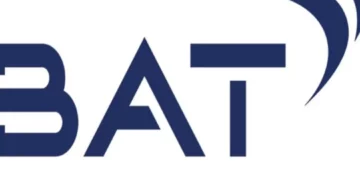The federal government has been urged to prioritise risk management in implementing the newly released 2024–2027 Medium-Term Debt Management Strategy (MTDS). Analysts warned that rising refinancing pressures and short-term obligations could undermine fiscal sustainability if not properly contained.
The updated MTDS, released by the Debt Management Office (DMO) and approved by the Federal Executive Council, provides a four-year framework for aligning government borrowing with revenue flows, while balancing cost against key risks such as refinancing, exchange rate, and interest rate exposures.
A major feature of the plan is the upward revision of Nigeria’s debt-to-GDP ceiling to 60 per cent from the previous 40 per cent. The strategy also recalibrates the debt mix to 55:45 between domestic and external sources, alongside new benchmarks to lengthen maturities and cap short-term borrowing.
In its review of the policy, Afrinvest West Africa noted that while the plan introduces use safeguards, Nigeria already breaches some of the thresholds, particularly on short-term debt. According to the firm, debt maturing within one year is now 6.95 per cent of GDP, well above the five per cent ceiling introduced under the new framework.
Applauding the intention to stretch maturities and reduce rollover pressures, Afrinvest analysts warned that “high inflation and volatile domestic rates will keep new borrowing costs elevated, thereby worsening the interest-to-GDP ratio. This exposes the government to elevated refinancing risk, as large maturities could exert significant repayment pressure relative to the size of the economy.”
They cautioned that the upward adjustment of the debt ceiling appears motivated less by sustainability considerations and more by the desire to create room for new borrowing. ‘Without meaningful improvements in revenue mobilisation, raising the limits could heighten fiscal vulnerabilities instead of fostering sustainable growth, Afrinvest added.
Meanwhile, analysts at Cowry Asset Management described the strategy as a pragmatic compromise that provides fiscal flexibility while retaining safeguards against shocks. They highlighted the minimum 10-year maturity profile, the cap of 15 per cent on debt maturing within one year, and limits on foreign exchange exposure as critical measures to preserve stability.
“By keeping the average time-to-maturity above ten years and capping short-term FX debt at 10 per cent of external reserves, the government is attempting to ring-fence rollover and currency risks,” Cowry said in its note. “The recalibration away from Eurobonds to concessional loans and domestic instruments also reduces exposure to volatile international capital markets.”
Cowry Assets in an emailed note acknowledged, however, that the target of limiting interest payments to 4.5 per cent of GDP could prove ambitious given rising domestic yields. It added that if achieved, the benchmark could ease Nigeria’s debt-service burden while attracting new investor interest in naira and dollar securities.
Beyond risk controls, the MTDS introduces new monitoring categories such as forex risk, with external debt capped at 40–45 per cent of total obligations, compared with 51.8 per cent at the end of 2024. Analysts believe this addition closes a major gap in previous strategies, where currency-related vulnerabilities were not explicitly tracked.





